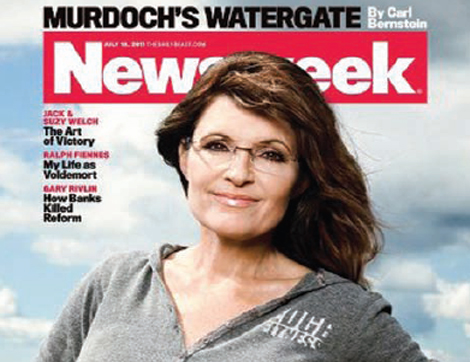
By Michael Collins Piper
The push for a new “centrist” third party being orchestrated behind the scenes at the highest levels is quietly escalating as the 2012 election cycle gets under way.
As recently as July 25, Chris Cillizza, chief in-house political columnist for The Washington Post, hyped the theme that “advocates of a third party—or at the very least another viable option in the 2012 presidential race—seem to be sprouting up all over.”
To many free-thinking Americans, third parties sound like a grand idea (which they are), but the problem—as AFP has been alone in the independent media in pointing out—is that the third party concept being touted by Cillizza has its origins in the elite, high-finance connected circles that already dominate both the Republican and Democratic parties.
In other words, the “centrist” party being promoted is designed to undercut the viability of any serious populist challenge to the power elite who already dominate the political structure in America. In short, it is a “controlled opposition.”
Cillizza’s influential “must read” weekly “Monday Fix” column—prominently placed each week on page 2 of the Post—featured the headline “Anger at Washington Revives Third-Party Push” and proceeded to describe a number of ongoing activities designed to set a third party in place. Cillizza noted, “Those who closely monitor these third-party efforts say that not only is there an array of groups with similar goals, but there also is money flowing to them from wealthy individuals trying to change the two-party dynamic.”
What makes Cillizza’s commentary so interesting is the fact that his column ignores that there are already several independent “third parties” that have been in existence for many years. Each of these parties has or has had ballot status at one time or another in all or nearly all of the 50 states. This list includes the Reform Party, the Constitution Party, the Green Party and the Libertarian Party.
While all of these parties differ in philosophy, they do stand as existing alternatives to the two major parties. But it’s clear that the Post and other like-minded voices in the controlled media don’t approve of these genuine opposition forces. That’s one of the foremost reasons why there is a push from the power elite to set up an alternative party that they control.
That the Post is lending its influence to the third party push is significant. Although publicly known as a fiefdom of the heirs of Zionist financier Eugene Meyer, first head of the World Bank and an early Federal Reserve board member, the Post has long been controlled by a tightly knit group of banks in the Rothschild dynasty’s sphere of influence whose tentacles can be found, in varying respects, throughout the “centrist” third party scheme now being promoted.
Meanwhile, although former Alaska Governor Sarah Palin remains mum about her 2012 presidential ambitions, the elite media has continued to keep her in the public eye. The July 18 issue of Newsweek (long controlled by the Post but sold to Zionist billionaire Sidney Harman—recently deceased—and his wife, former Representative Jane Harman (D-Calif.), once again featured a cover story about Mrs. Palin with the bold headline quoting Mrs. Palin: “I can win.”
As this newspaper pointed out in an exclusive special report, The Power Behind Sarah Palin,* the Washington Post-Newsweek publishing network has been particularly generous and actually quite supportive in its promotion of Mrs. Palin, making it clear that those who control these influential media voices see a use for Mrs. Palin in the forthcoming election.
Michael Collins Piper is an author, journalist, lecturer and radio show host. He has spoken in Russia, Malaysia, Iran, Abu Dhabi, Japan, Canada and the U.S.

